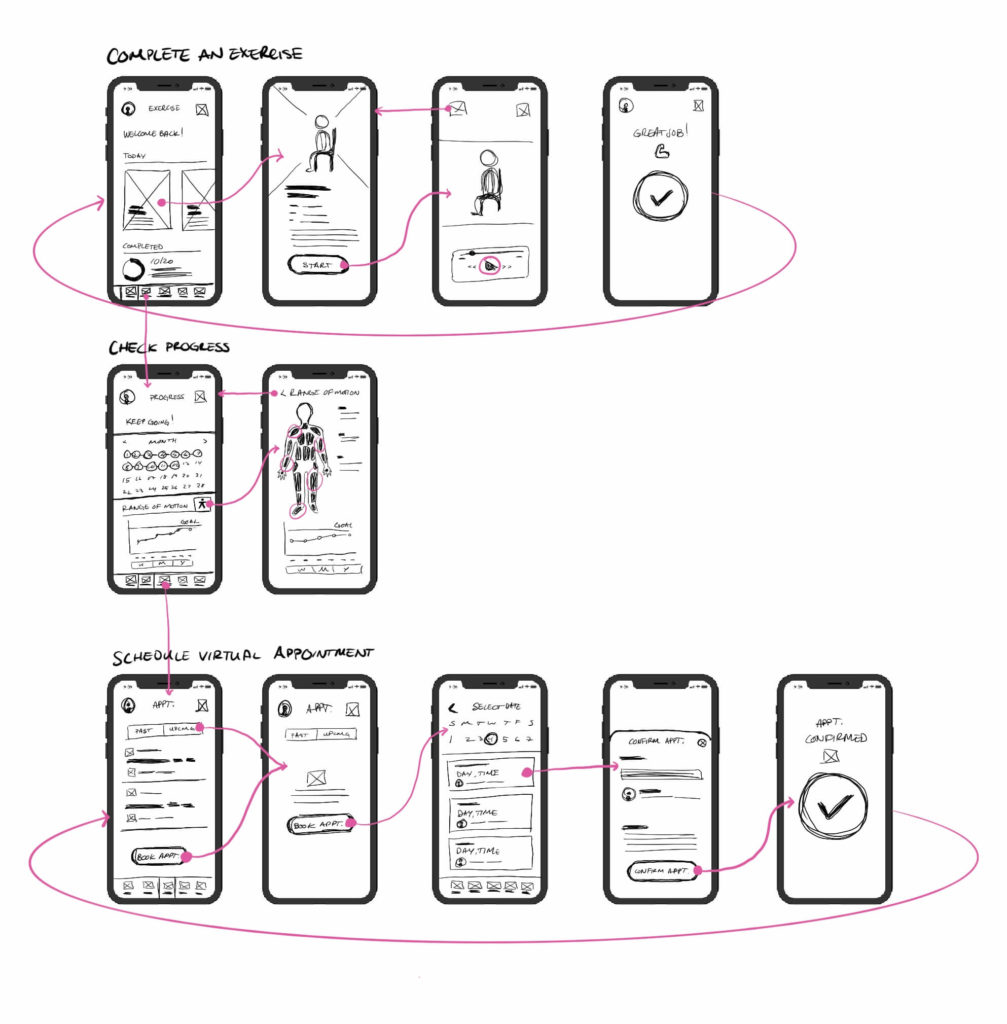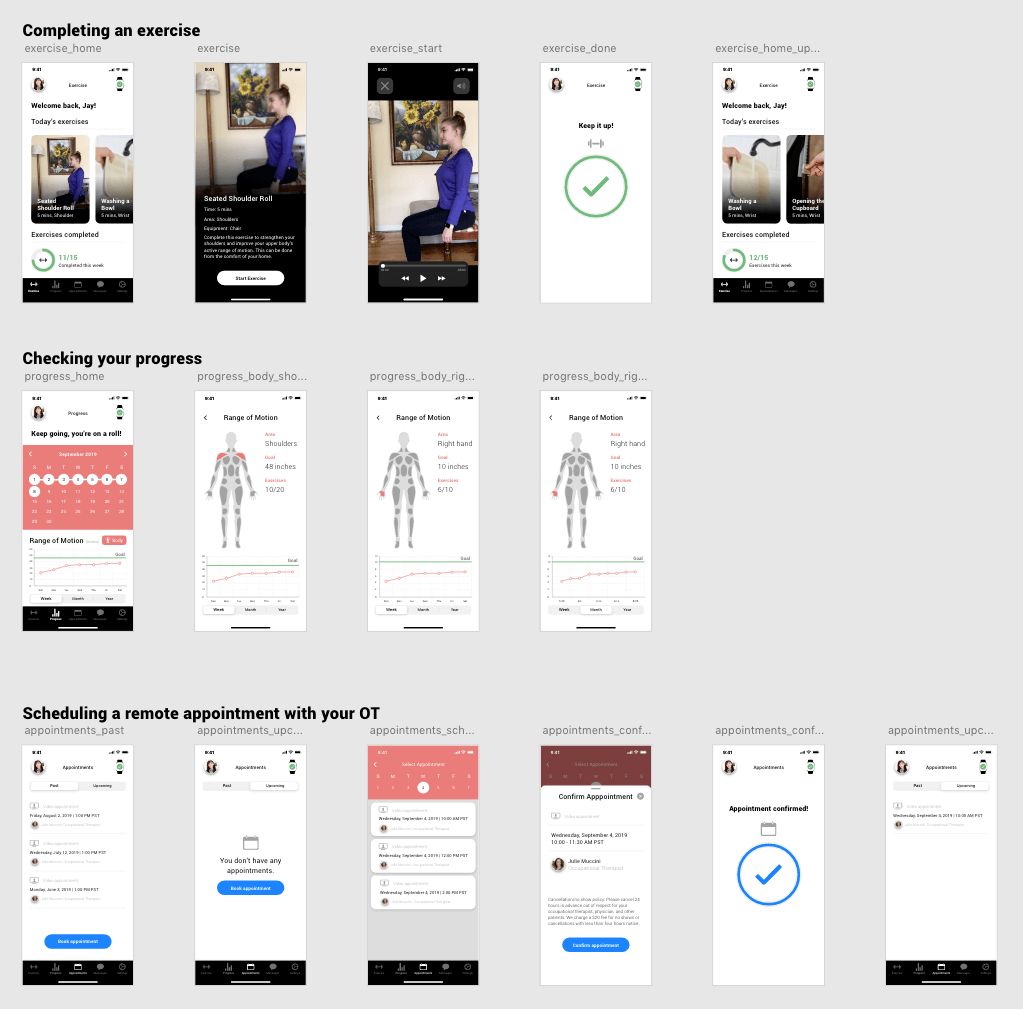Physical Therapy Coach
Challenge
Occupational therapists and stroke patients need to work together to make sure rehabilitation plans are completed remotely.
Outcome
An iPhone and Apple Watch application that coaches stroke patients through their physical therapy program, which occupational therapists can manage and modify remotely.
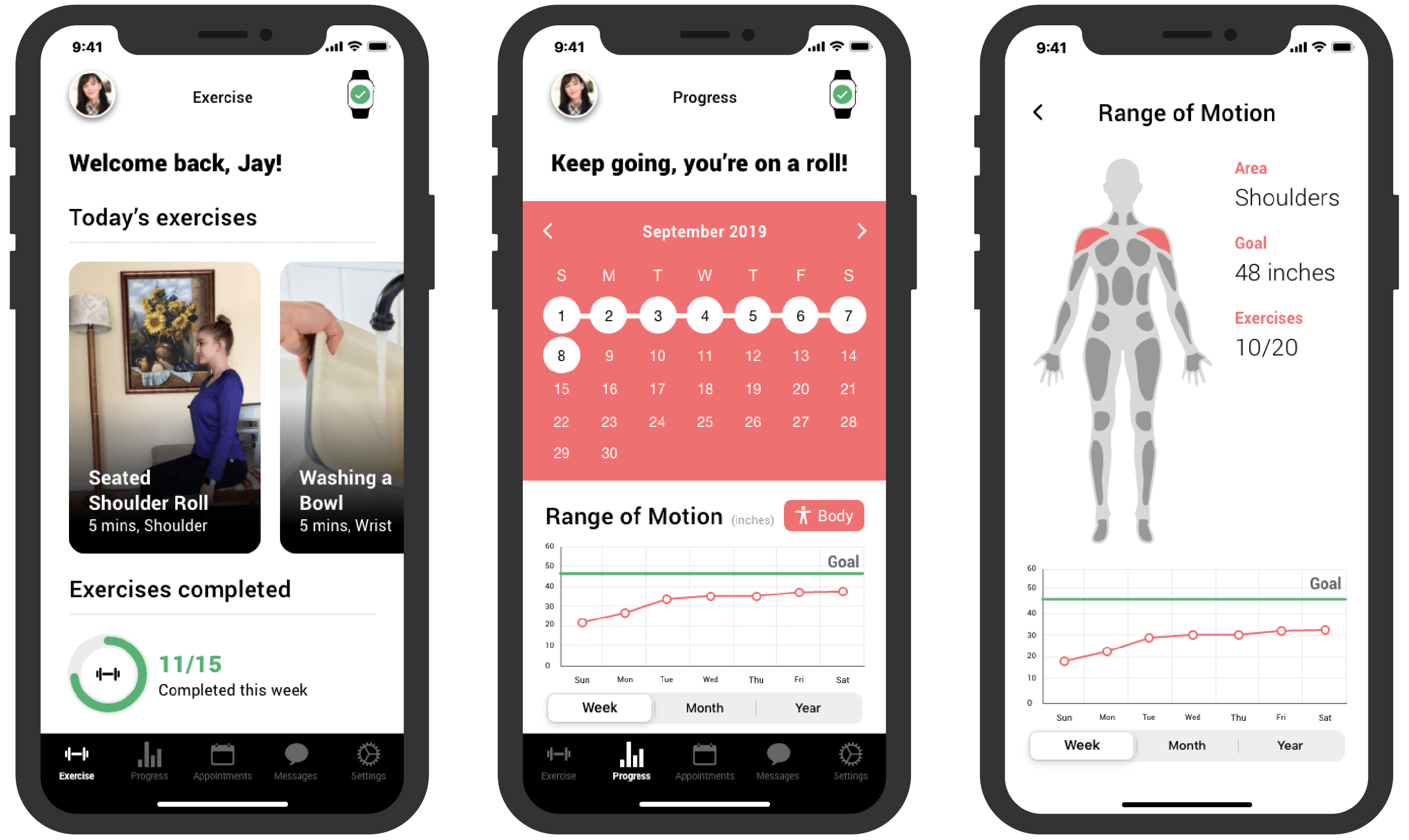
Background
During graduate school, I was exploring new healthcare technologies and working on projects at the Stanford University School of Medicine. I applied to a product design position at the Stanford Stroke Center, which was exploring creative uses of the Apple Watch to address important issues in healthcare.
Personally, I am deeply interested in designing ways to provide access to effective solutions (healthcare solutions in this case) at scale to those who need it most.
Though I left the project after graduating, I have handed off design specs to the lead engineer, and this product is currently being developed at the Stanford University School of Medicine.
My Role
Product Designer
Deliverable
Mobile iOS and Apple Watch Application, Online web dashboard
Product Impact
Concept Funded by Apple Watch Seed Research Grant Program to build and launch application for research trials with stroke patients
Timeline
3 months, April - June 2019
Key insights from stroke patients, caregivers, and occupational therapists:
I interviewed stroke patients, caregivers, and occupational therapists to understand their pain points. Stroke patients often don't have physical therapy equipment and coaching to help them with exercises. Further, they often report inaccurate information and caregivers have to step in to provide accuracy. Therefore, occupational therapists find it increasingly difficult to provide tailored support and coaching, especially while managing 100+ patients.
Pain points and opportunities to address:
“I don't have the proper equipment to complete my physical therapy at home.”
- Recovering stroke patient
“They are not accurately tracking their physical therapy, but I don't want to push them too hard or call them a liar.”
- Caregiver to stroke patient
“I have hundreds of patients. Not everyone is able to come in to our center for me to observe and adjust their plans.”
- Occupational therapist
Mobile application for stroke patients to complete and track their physical therapy goals:
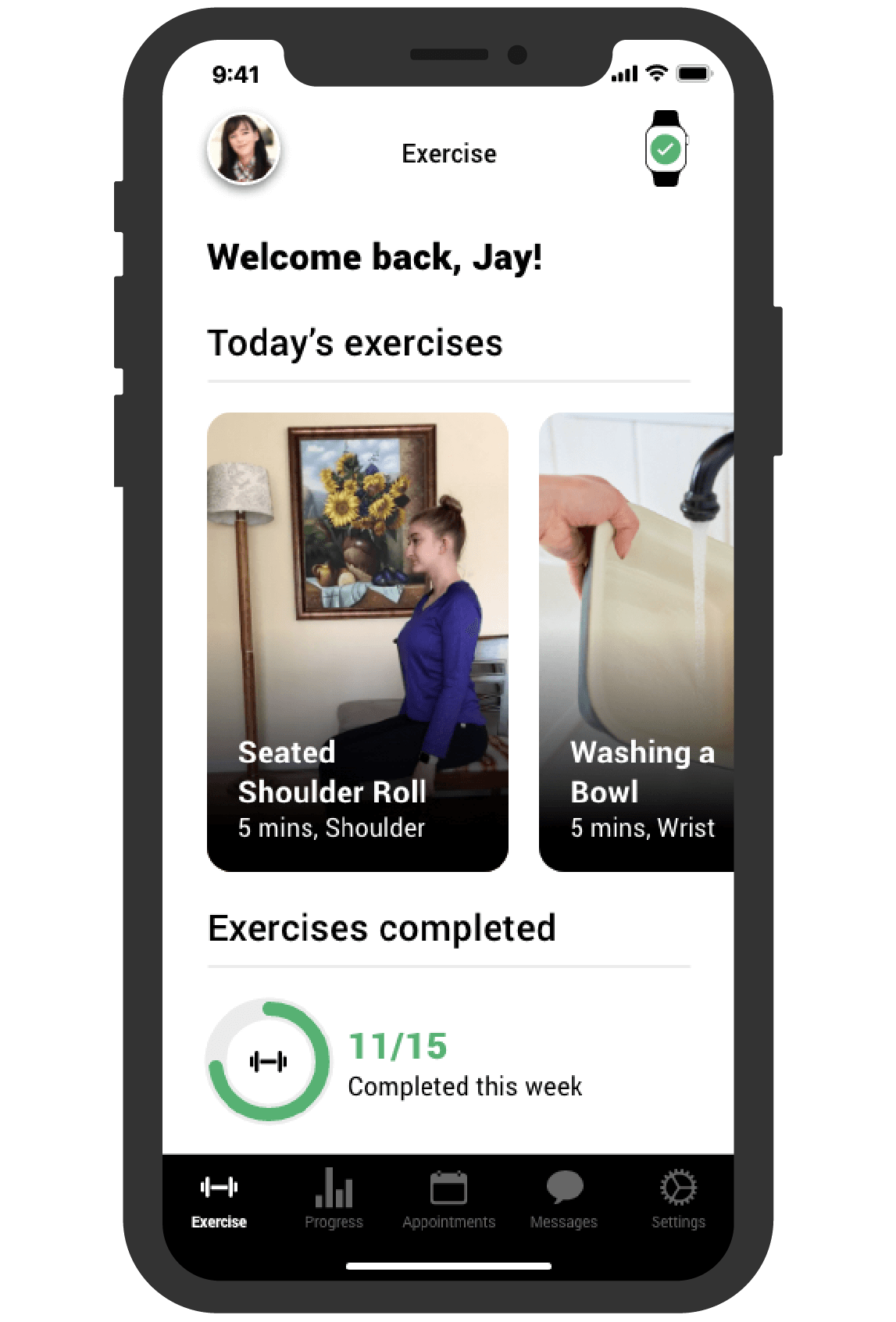
Patients can see exercises they can do everyday from the comfort of their own home. Exercises were approved by occupational therapists and require little to no equipment.
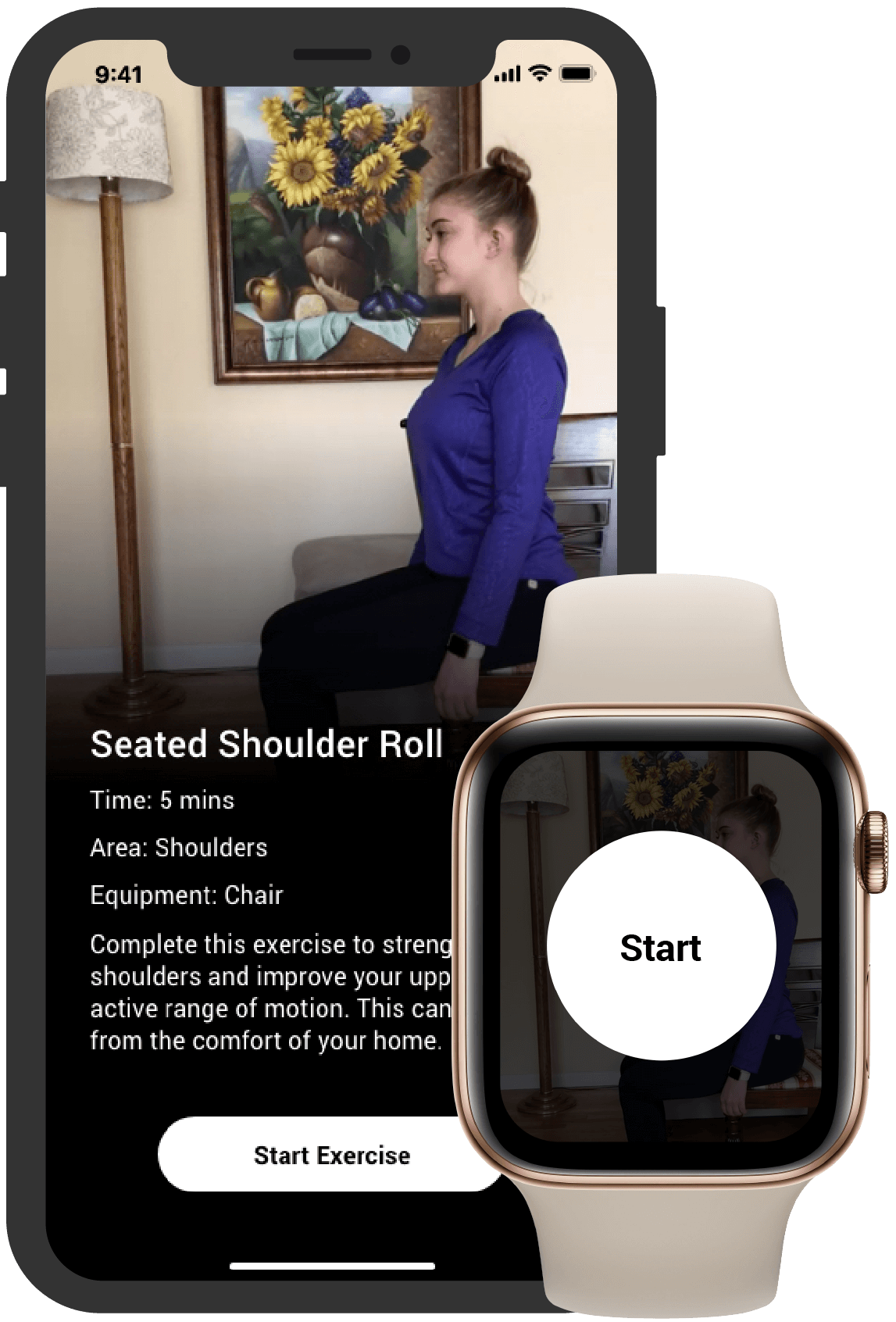
An exercise can be started from the mobile app or watch. The watch's accelerometer and gyroscope tracks specific arm movements and delivers real-time information to the app.
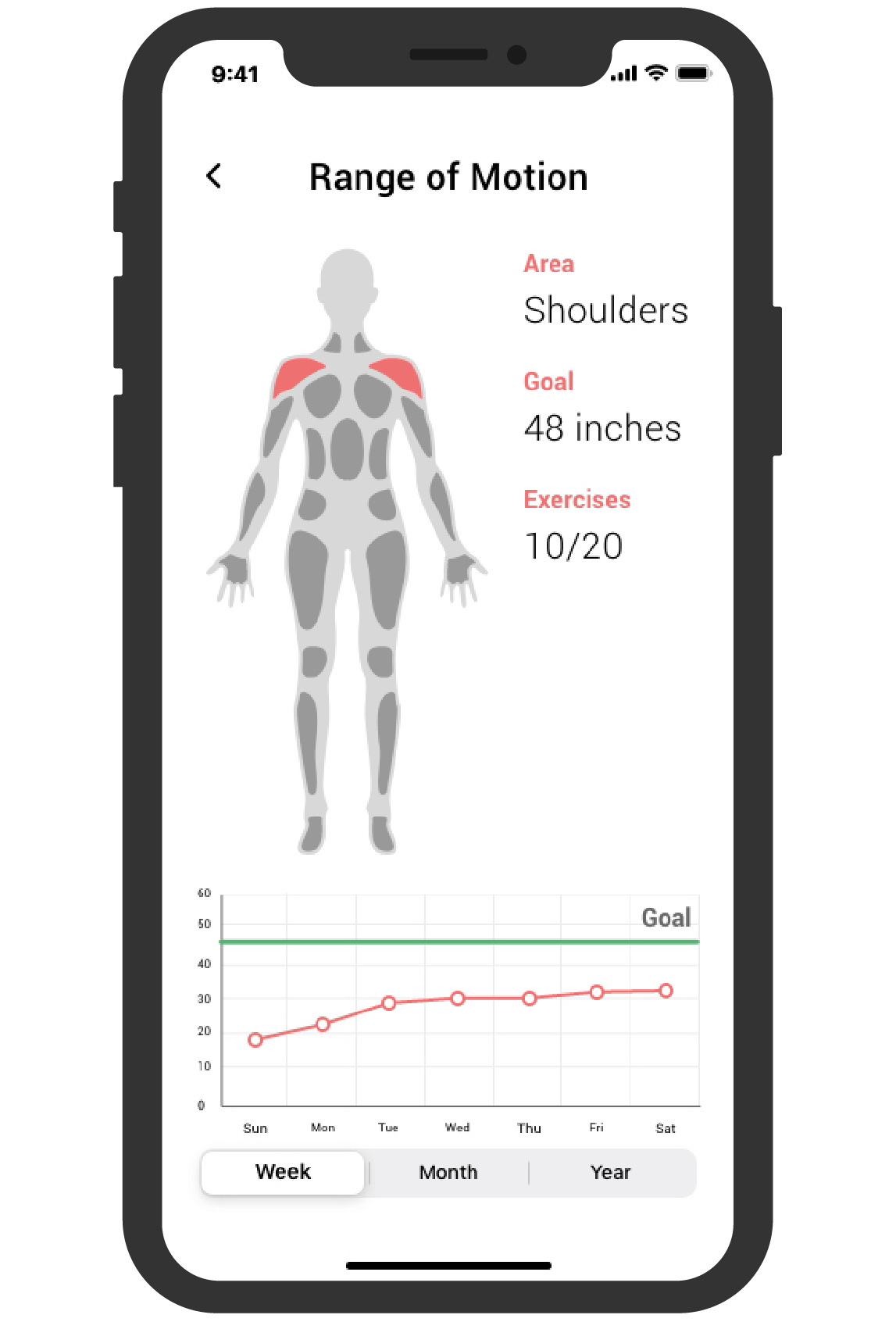
Patients can track their own exercise progress and goals. Progress data is automatically delivered to an online dashboard for occupational therapists to manage and modify as needed.
Experimenting with interactions and transition animations
To give stakeholders and engineers more detail of how some of the mobile app interactions would work, I created animations within the interactive prototype using Adobe XD.
Data dashboard for occupational therapists to manage multiple stroke patients:
Mobile app data is aggregated onto a HIPAA-compliant dashboard for occupational therapists (OTs) to manage their patients. OTs can modify rehabilitation plans, administer new exercises, and be alerted of concerning signals.
Occupational therapists' can accurately track their tasks and are reimbursed through a series of Current Procedural Terminology (CPT) codes focus on remote patient monitoring and physical therapy.
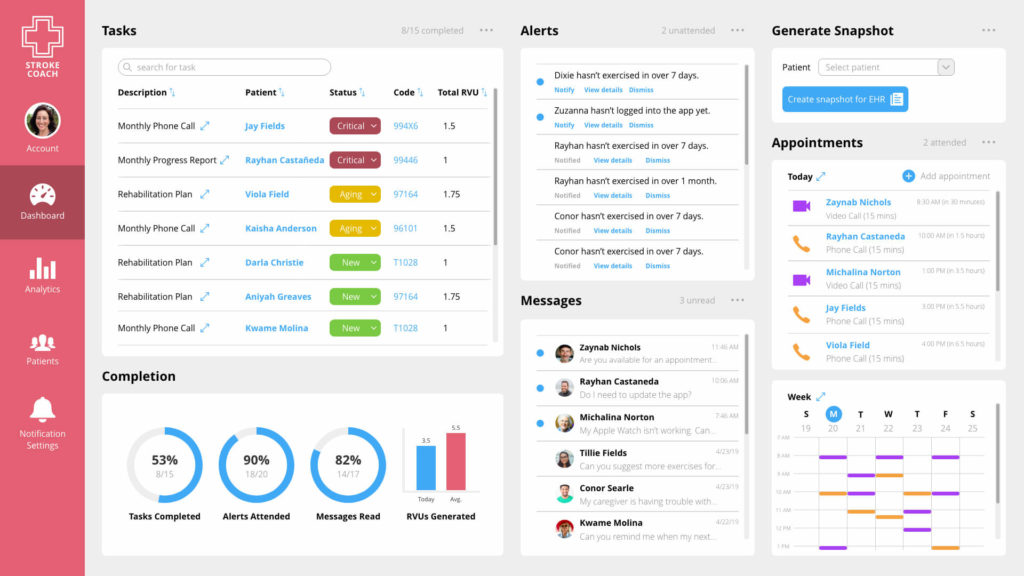
Patients' information is organized on the dashboard so that occupational therapists can easily search for a patient, and track various cohorts.
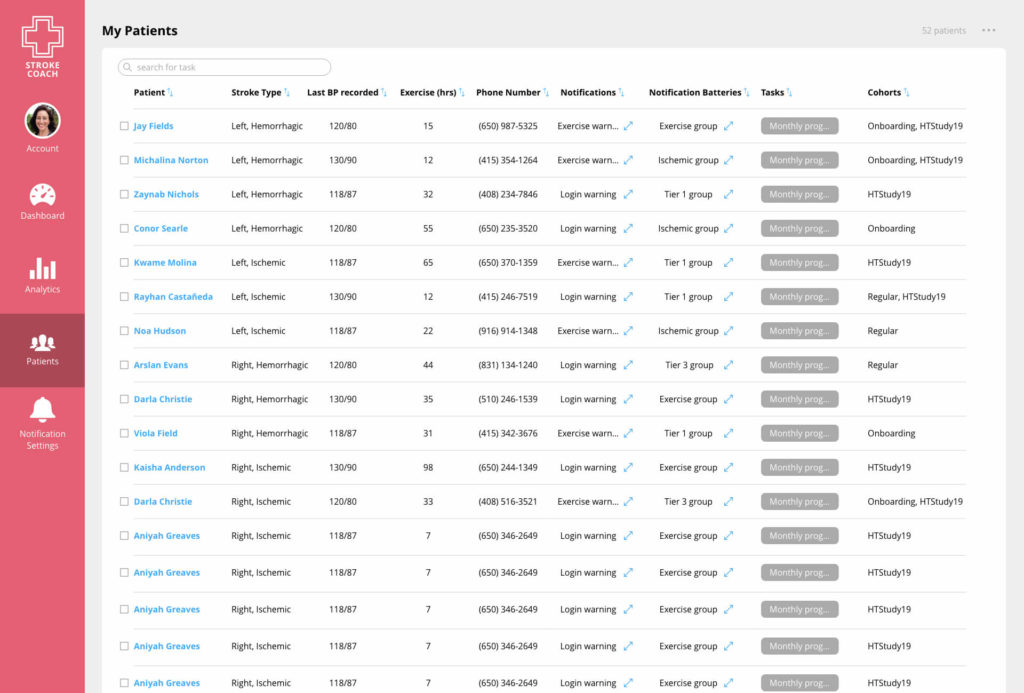
Occupational therapists can add notifications that can be triggered in bulk, and sent to the patients via in-app push notifications.
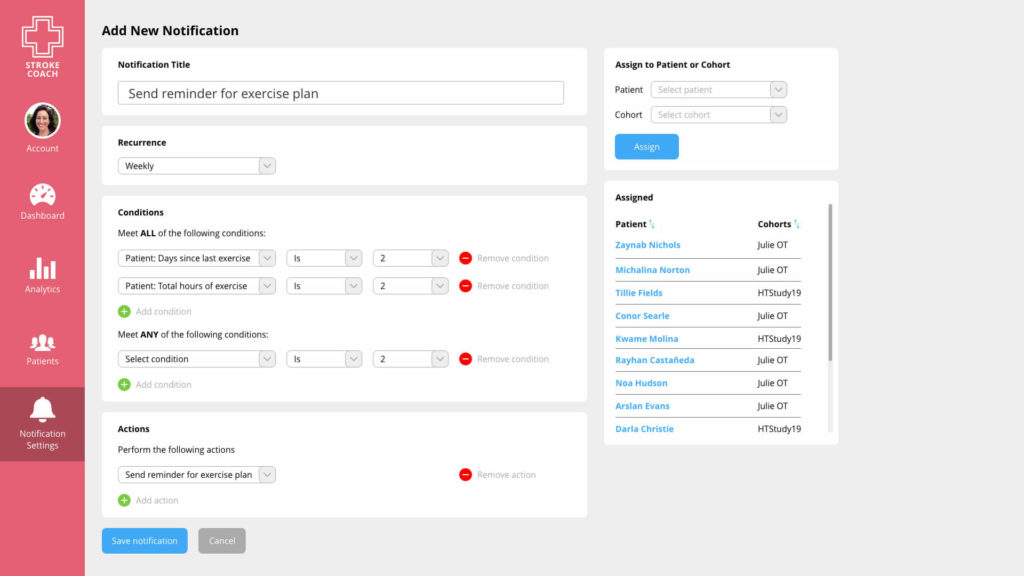
Dashboard design was informed by paper protoyping different modules, and allowing occupational therapists to sort which modules are important to them.
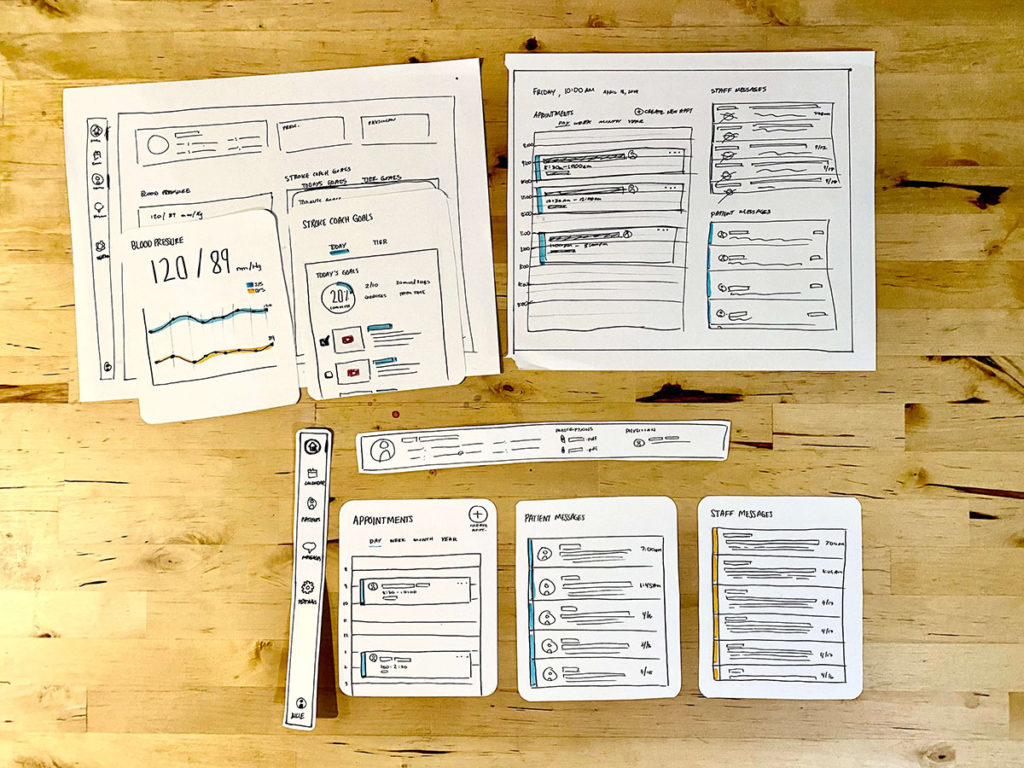
Credits
Maarten Lansberg, MD, PhD (Neurology), Principal investigator
Mike Hittle (Biomedical Computation), Co-investigator
Julie Muccini, Occupational Therapist for Outpatient Neuro Rehabilitation Services at Stanford Healthcare
© Copyright Kenneth Fernandez 2019. Designed with ♥︎ in San Francisco, California.
